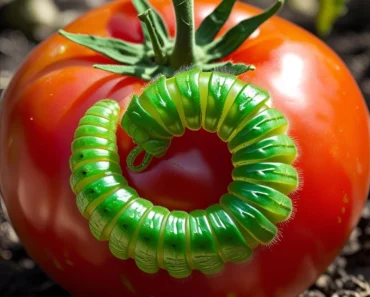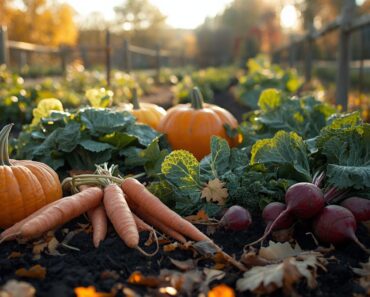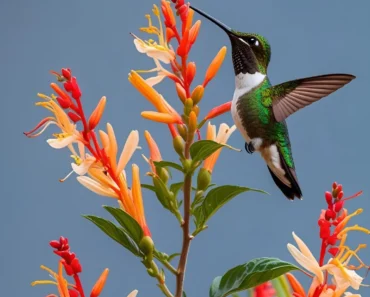Braconid wasps are a powerful ally in the fight against agricultural and garden pests, operating as natural biological control agents that offer sustainable, eco-friendly alternatives to chemical pesticides. As parasitoids, these tiny wasps parasitize and kill a wide range of damaging caterpillars and other insect larvae, helping reduce pest populations while preserving beneficial insects and ecosystems. This article explores why braconid wasps are essential for biological pest control, their life cycle, mechanisms, benefits, and practical applications in modern integrated pest management (IPM) strategies.pmc.ncbi.nlm.nih+2

What Are Braconid Wasps?
Braconid wasps belong to the family Braconidae within Hymenoptera, a vast group including bees, ants, and other wasps. There are thousands of braconid species worldwide, many specialized as parasitoids of agricultural pests such as moth and butterfly larvae (Lepidoptera), beetle larvae, aphids, and other insects.sciencedirect+2
Parasitoid means that braconid wasps lay eggs on or inside a pest host. The developing wasp larvae feed on the host’s body, eventually killing it. This mechanism controls pests naturally without harmful chemical residues or resistance issues typical of conventional pesticides.pmc.ncbi.nlm.nih
The Braconid Wasp Life Cycle and Pest Regulation
Female braconid wasps search hungry pest larvae by scent and sight. Once found, they use their ovipositor to paralyze the pest with venom and then lay their eggs either on the external surface or inside the body cavity of the host larva. The host remains alive but immobilized during wasp larval development.
Once the wasp larvae mature, they destroy the pest from within, emerging as adult wasps ready to repeat the cycle. This targeted destruction of pests often reduces pest density below economic damage thresholds, stabilizing agricultural ecosystems effectively.icup+1
Key Benefits of Braconid Wasps in Biological Pest Control
1. Efficient and Specific Pest Suppression
Many braconid wasps specialize in parasitizing specific pest groups, such as lepidopteran caterpillars that attack crops and stored products. This host specificity means braconid wasps reduce pests with minimal collateral damage to beneficial insects like pollinators or predators.koppert+1
2. Environmentally Friendly and Sustainable
Braconid wasps naturally regulate pest populations without toxic chemicals, reducing pesticide runoff, soil contamination, and harm to non-target organisms. This promotes biodiversity and soil health, essential for sustainable agriculture.icup+1
3. Reduces Pesticide Resistance Risks
Chemical pesticides tend to select resistant pest populations over time. Biological control agents like braconid wasps use complex ecological interactions that pests can’t easily adapt to, offering longer-term effectiveness.agrio+1
4. Cost-Effective and Low Maintenance
Once established or introduced, braconid wasps reproduce and sustain themselves with little further intervention. Their natural behavior targets a wide pest range economically, reducing repeated treatment costs associated with sprays.pmc.ncbi.nlm.nih
5. Enhances Integrated Pest Management (IPM)
Braconid wasps complement other IPM tools—cultural controls, resistant varieties, mechanical trapping—and can be used alongside selective, minimal pesticides without harming wasp populations.koppert
Practical Applications and Examples
Stored Grain and Product Pest Control
Braconid wasps like Bracon brevicornis and B. hebetor are effective in suppressing moth pests such as Ephestia kuehniella and Plodia interpunctella that infest stored grains and foods. They can be introduced into storage areas where their parasitism reduces larvae without pesticide residues.pmc.ncbi.nlm.nih
Field Crop Pest Management
Braconid species contribute to pest regulation in corn, tomatoes, cotton, and other key crops by parasitizing caterpillars and aphids. Deployments in greenhouses and field edges serve as preventive measures maintaining pest pressures below damaging levels.gardenbetty+1
Urban and Ornamental Horticulture
By naturally controlling pests in garden plants and ornamental landscapes, braconid wasps support healthy plant growth and reduce aesthetic damage without introducing chemicals harmful to humans, pets, or pollinators.grotongardenclub
Challenges and Considerations
-
Environmental Conditions Matter: Temperature and host availability influence braconid reproductive success and efficacy. Optimal conditions vary among species but generally range around 20–27°C for effective control.pmc.ncbi.nlm.nih
-
Integration Complexity: Biological control requires careful planning and monitoring. Incomplete pest control or misuse can arise from improper timing or incompatible pesticide use.
-
Mass Rearing and Release Logistics: Producing large quantities of braconid wasps under controlled conditions is crucial for commercial applications, but can be labor-intensive.pmc.ncbi.nlm.nih
How to Support Braconid Wasps in Your Garden or Farm
-
Plant Diversely: Provide nectar and pollen resources from flowers to sustain adult wasps.
-
Minimize Broad-Spectrum Pesticides: Use selective products or timing to preserve braconid populations.
-
Create Habitat: Leave refuge areas such as ground covers or hedges that shield wasps and their prey.
-
Use Inoculative or Augmentative Releases: Introduce commercially farmed braconid wasps early in the season or when pest outbreaks occur to boost natural control.agrio+1
Conclusion: Nature’s Tiny Pest Warriors
Braconid wasps embody the promise of biologically-based pest control—efficient, sustainable, safe, and cost-effective. By harnessing their natural parasitic behaviors, growers reduce chemical dependence, enhance biodiversity, and secure crop health in environmentally responsible ways. Continued scientific research and practical adoption will expand the important role of braconid wasps in modern crop and garden protection.sciencedirect+2
- https://www.sciencedirect.com/science/article/pii/S2095311918620787
- https://pmc.ncbi.nlm.nih.gov/articles/PMC8164837/
- https://gardenbetty.com/braconid-wasps/
- https://www.icup.org.uk/media/izvfoktx/icup1232.pdf
- https://www.koppert.com/knowledge/benefits-of-using-parasitic-wasps-for-pest-control/
- https://agrio.app/How-to-maximize-the-value-of-parasitic-wasps-in-agriculture/
- https://www.grotongardenclub.org/post/beneficial-bugs-parasitic-wasps
- https://www.sciencedirect.com/topics/agricultural-and-biological-sciences/braconid






